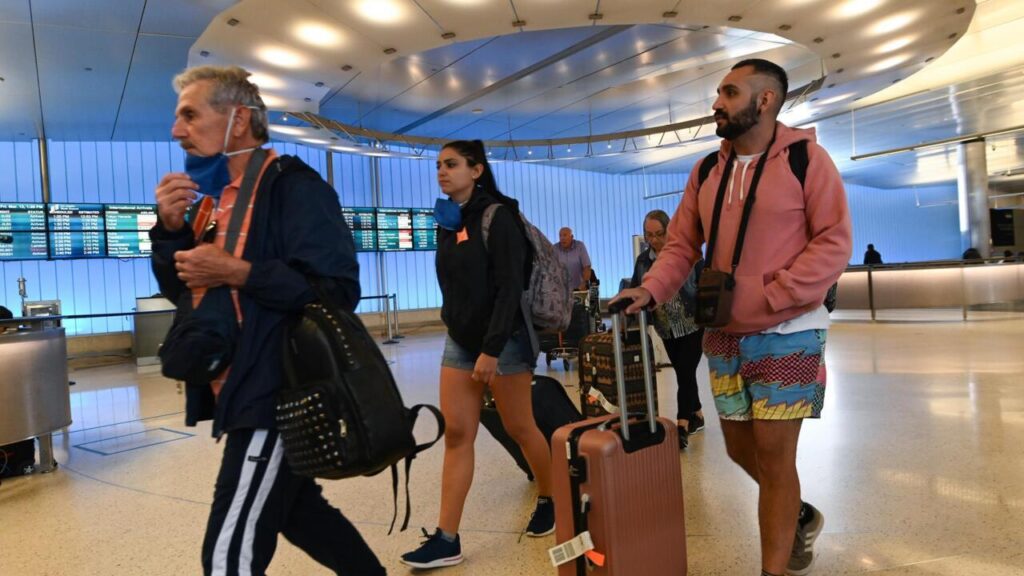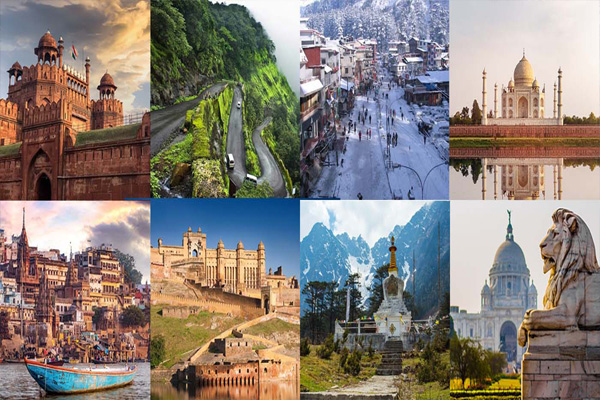
(FILES) In this file photo taken on March 13, 2020 Passengers arrive at Los Angeles Airport international terminal hours before the start of the European travel ban, March 13, 2020, in Los Angeles, California. - The US on August 6, 2020, lifted a warning to its citizens to avoid all foreign travel due to the coronavirus pandemic, pointing to improvements. The State Department said it would instead resume considering each country on a case-by-case basis. (Photo by Robyn Beck / AFP)
The concept of a global travel ban, where countries close their borders permanently, is an unsettling thought. In recent years, temporary border closures due to the COVID-19 pandemic have provided a glimpse of what a world with restricted travel might look like. But what would happen if these closures became permanent? The effects of a global travel ban would ripple across economies, cultures, and societies, bringing both challenges and unexpected opportunities.
1. Economic Collapse and Transformation
One of the most immediate and devastating impacts of permanently closing borders would be the collapse of the global travel and tourism industry. In 2019, international tourism accounted for over 10% of global GDP, with millions of jobs relying on the movement of people across borders. Airlines, hotels, cruise lines, restaurants, and countless other businesses would only face financial ruin with the influx of international visitors.
Countries heavily dependent on tourism for revenue, such as small island nations and historically popular destinations, would be hit hardest. Countries like Thailand, Spain, and Mexico, where tourism accounts for a significant portion of the economy, would need to find alternative sources of income. On the other hand, nations less reliant on tourism might face fewer immediate financial consequences. However, the global economy would still suffer from the disruption of international trade, investment, and collaboration.
2. Impact on Trade and Supply Chains
In addition to tourism, the global supply chain would be severely disrupted. Goods and services cross borders daily, with factories and warehouses depending on international shipments of raw materials and finished products. Permanent travel bans would mean the end of face-to-face meetings and global business conferences, as well as the ability to send workers across borders for specialized tasks easily.
With restricted travel, many industries would need help to operate efficiently. Import-export businesses would face delays, increasing costs for consumers and companies alike. International research, technology development, and problem-solving cooperation could become significantly more challenging. The global economy would shift towards more localized trade, which could come at the expense of economic growth and innovation.
3. Cultural Isolation and the Loss of Globalization
One of the most significant consequences of a global travel ban would be the loss of cultural exchange. Travel has long been a vehicle for cultural understanding, fostering global connectivity, and breaking down barriers between people from different backgrounds. If borders were permanently closed, the world would become more insular, with each country retreating into its culture and traditions.
Without travel, students would no longer be able to study abroad, and global events such as international sporting competitions or festivals would become much rarer. The arts, fashion, music, and cuisine from different regions would be less likely to spread and influence each other, leading to more homogeneous cultures.
In the long term, this cultural isolation could have far-reaching effects on societal attitudes, potentially fostering more nationalism, distrust, and division between nations. The interconnected world that globalization has built over the past few decades would begin to unravel, leaving behind a more fragmented global community.
4. Strain on Mental Health and Personal Relationships
Travel allows people to reconnect with family, friends, and loved ones across distances. Whether visiting relatives in another country or taking a vacation to recharge, the freedom to travel has long been a source of joy and well-being for many. A permanent travel ban would prevent these connections from occurring, leaving people isolated from their loved ones and causing a rise in mental health struggles.
In addition, the inability to explore new destinations and experiences could lead to stagnation, as people cannot broaden their horizons. For those who rely on travel for business, leisure, or education, the psychological effects could be profound, leading to frustration, anxiety, and a diminished quality of life.
5. Environmental Impact and Potential Benefits
On the environmental side, a global travel ban could lead to a decrease in carbon emissions. Air travel is a significant contributor to global greenhouse gas emissions, and without international flights, the world’s carbon footprint would decrease substantially. However, this benefit would be offset by other factors, such as increased domestic travel and production and local goods consumption.
In the long run, the world could experience a shift toward more sustainable, localized living. Countries may invest in green technologies and innovation to create self-sufficient systems, leading to a more sustainable way of life. However, this would come at the cost of reduced cultural exchange and the economic toll of a lack of international travel.
Conclusion: A World of Uncertainty
A permanent global travel ban would undoubtedly reshape the world in expected and unforeseen ways. While specific benefits, such as environmental improvements and reduced global risk, might arise, the social, cultural, and economic costs would be immense. In a world that thrives on interconnectedness, losing the freedom to move, explore, and connect could lead to a more divided and isolated global community.
The question remains: Would humanity adapt to this new, isolated world, or would the push for freedom and connection ultimately demand the reopening of borders? Only time will tell, but for now, permanently closing borders remains a powerful reminder of how deeply our lives are entwined with the ability to travel.







